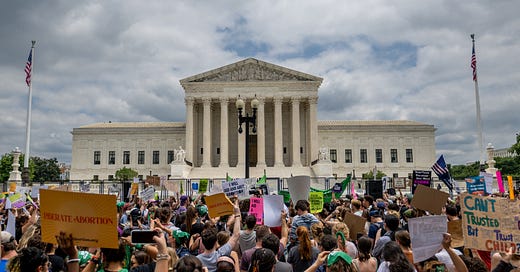The Supreme Court announced this morning that they’ll hear the case challenging FDA approval of mifepristone, the first pill in the abortion pill regimen. This is the biggest case concerning abortion access since Dobbs.
What’s most important to know is that SCOTUS will not be looking at the original challenge to FDA approval of the drug. Instead, they’ll review the 2016 and 2021 changes to restrictions around mifepristone, and whether or not the Alliance of Hippocratic Medicine (the anti-abortion group who brought the lawsuit) has standing.
In short, the legality of mifepristone shouldn’t be at risk, but access and availability of the medication is. It’s a reduced scope than what the anti-abortion movement was hoping for, and as Chris Geidner writes at Law Dork, it represents “a best-case scenario for abortion rights supporters.”
Still, the restrictions they’re reviewing are meaningful ones—like tele-health access, the ability to receive abortion medication in the mail, and how far into pregnancy you can take the pills. (Right now it’s 10 weeks, these restrictions could put it at 7 weeks.)
But for now, access to mifepristone remains in place until SCOTUS releases a decision—likely around June 2024.
Abortion, Every Day will keep you updated on the case, and you can expect to hear more from us on it later today. In the meantime, check out our explainers on the case here and here for a refresher.
-Jessica & Grace
If you need abortion medication now, or want to have pills on hand for the future (advance provision), here are a few trusted groups that can help: Aid Access, Plan C Pills, Abortion Finder, I Need An A





Jessica and Grace, you are so appreciated for all your work and for this comment outlet/space for those, like me, who mentally thank you from afar for every day.
As good as the news can be, I guess. Still, I can't help but wonder if this isn't part of the steady "drip, drip, drip" erosion of abortion rights in this country. First they limit it's availability, and then in a second case somewhere down the road, they eliminate access to it entirely.